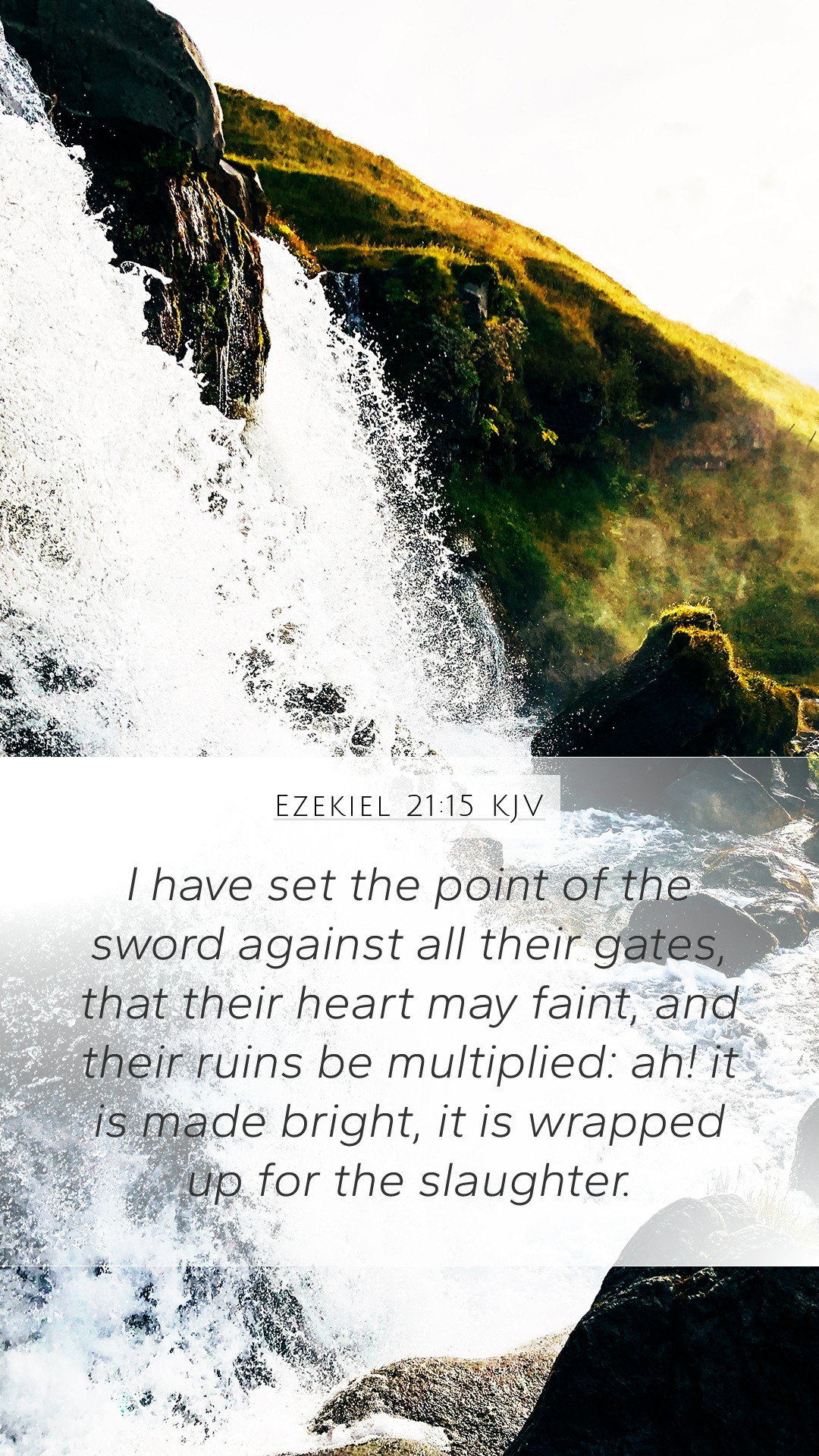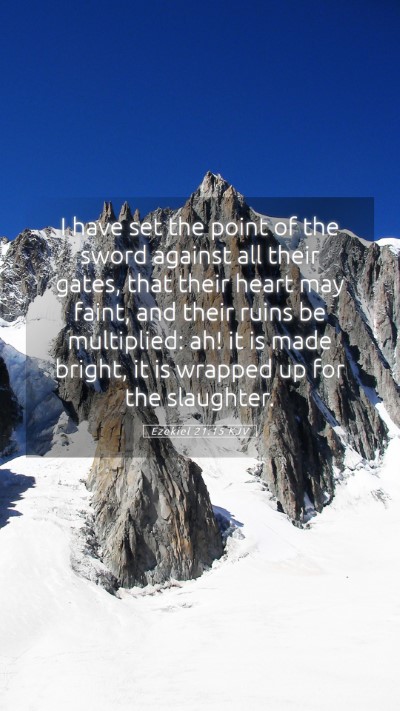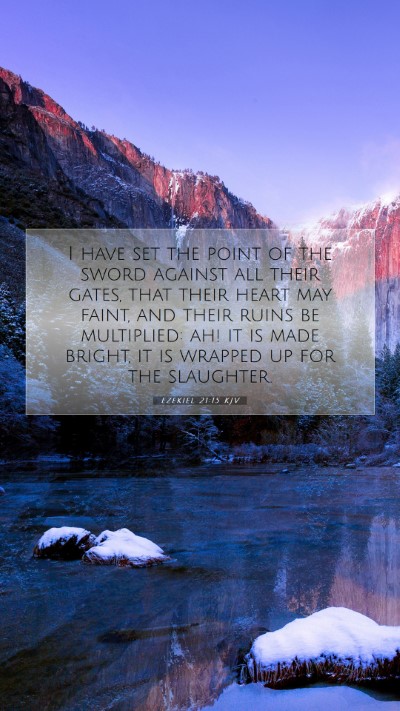Bible Verse Meaning: Ezekiel 21:15
In Ezekiel 21:15, the prophet Ezekiel delivers a powerful and vivid message from God regarding impending judgment on Israel. The verse states,
"I have set the point of the sword against all their gates, that the heart may melt, and the ruins be multiplied." This verse serves as a
grim proclamation of destruction and desolation, intending to instill fear and realization among the people of Israel regarding their sins and the consequences of their actions.
Overview of Ezekiel 21:15
The context of Ezekiel 21 revolves around the themes of divine judgment and the consequences that follow Israel's disobedience. God’s sword,
symbolizing judgment, is poised against the city, emphasizing urgent crises faced by the people as judgment looms over them.
This analysis draws upon insights from key public domain commentaries to enhance our understanding of this powerful scripture.
Insights from Commentaries
-
Matthew Henry's Commentary:
Henry emphasizes that the sword mentioned represents God's judgment, which is not arbitrary but a direct response to the unfaithfulness
and rebellion of the people. He suggests that God aims to make the hearts of the people melt, indicating a moment of reckoning where they are
brought to face the realities of their sins. His commentary further highlights how this serves as both a warning and an opportunity for repentance.
-
Albert Barnes’ Notes on the Bible:
Barnes elaborates on the symbolism of the sword paralleled with God's righteous vengeance. He notes that the 'gates' of the city refer to
the entrances where the people expected safety, illustrating that no place will be immune to divine judgment. The multiplying of ruins signifies
total devastation that may follow should the people remain unrepentant; a backdrop intent on driving home the seriousness of their situation.
-
Adam Clarke's Commentary:
Clarke addresses the historical and prophetic implications of this verse, relating it to the looming Babylonian invasion. He interprets the 'heart
may melt' phrase as a call towards humility and realization of the state they are in, pointing out the urgency to repent and seek mercy. Clarke emphasizes
the consequences of continued disobedience while offering insights into the emotional and spiritual response needed by the inhabitants of Jerusalem.
Application of Ezekiel 21:15
The verse speaks not only to the ancient Israelites but also to modern-day readers. Understanding Scripture such as Ezekiel 21:15 helps individuals recognize
the patterns of sin and consequences in both personal and communal contexts. This passage can serve as an anchor in
Bible study groups or online Bible study sessions, urging participants to discuss the implications of divine judgment
contrasted against God’s mercy.
Significance of the Message
-
Repentance is Critical: Just as the people were called to repentance, modern believers are encouraged to examine their hearts
and turn away from sinful behavior.
-
Awareness of Consequences: The consequences of disobedience are evident both in historical narratives and current life situations,
underscoring the significance of living a life aligned with God’s will.
-
Divine Judgment and Mercy: This verse paints a portrait of God’s justice while remaining a testament to His willingness to embrace those
who come to Him in humility and faith.
Related Cross References
- Jeremiah 25:32-33: Discusses the impending judgment on the land.
- Ezekiel 7:4: Highlights God's commitment to hold sinners accountable.
- Hebrews 10:30-31: Emphasizes that it is a fearful thing to fall into the hands of the living God.
Conclusion
Engaging with Ezekiel 21:15 offers deep
Bible study insights into the nature of God—His justice and mercy. Understanding this verse
aids in grasping the broader themes of biblical prophecy and human response. Whether through personal study
or in Bible study groups, this verse challenges individuals to examine their lives in light of God’s holiness and calls for
adherence to His divine will.


